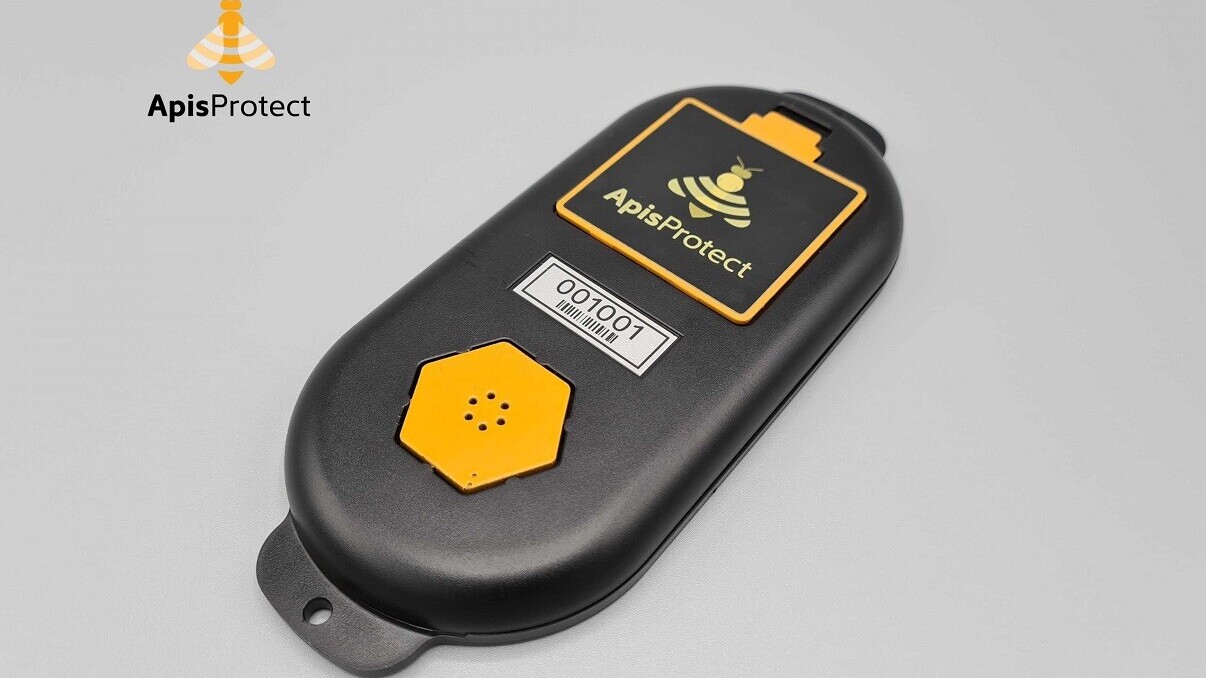Not be an alarmist, but if bees go extinct it’s likely that coffee would become a rare and expensive luxury commodity. And I don’t want to live in that world.
Luckily, ApisProtect today announced its entry into the US market where it will provide its unique AI-powered hive monitoring system to beekeepers and farmers.
If you’re unfamiliar, ApisProtect is a European startup that uses simple proprietary devices and a unique stack of AI and software to, essentially, give beekeepers a spy on the inside.
This means ‘keepers can get ahead of health issues that otherwise could remain hidden. According to ApisProtect:
Beekeepers often rely on costly, time-consuming manual hive checks to understand their operation. However, ApisProtect research shows that 80% of manual hive inspections do not require any action on hives but disrupt the bees and risk the loss of a queen.
With ApisProtect, commercial beekeepers can now safely identify and respond to disease, pests, and other hive problems faster than ever before, thereby increasing colony size and preventing colony loss. ApisProtect lets beekeepers know immediately when specific hives need attention within their operation, as well as which hives are most productive.
Quick take: While specific projections may vary, it’s safe to say that honeybees are endangered to the point where solutions like this should be considered environmental safety efforts. 2020 was a crappy year for beekeepers coming off of a crappy decade for bees.
This is exactly the kind of thing AI is best suited for. Bees can adapt to just about anything but murder hornets and humans invading their spaces, and it turns out ApisProtect safeguards hives against both.
Pádraig Whelan, Co-Founder and Chief Science Officer of ApisProtect, said, in a press release:
ApisProtect technology could be a useful tool for the detection of murder hornets as a potential new threat to bee hives this pollination season.
Murder hornets can wipe out a bee hive in a matter of hours. Our platform can pinpoint the date at which a hive dies and distinguish whether this has been gradual or sudden. If a hive is healthy one day and dead the next, the beekeeper is alerted rather than having to wait for the next scheduled manual inspection.
The beekeeper can then prioritize visiting the hive and identify the tell-tale signs of a hornet attack. Precision beekeeping ensures the beekeeper can quickly take preventative measures to ensure the safety of their hives and others in the area.
The fact of the matter is that whether it’s murder hornets, climate change, or disease that’s causing the problem, we need to fix it. Bees are incredibly important to the future survival of humans.
While the threat may have been blown out of proportion – it’s unlikely we’ll go extinct just because there are no more bees – the loss of our honey-making friends would be a bonafide catastrophe.
According to the National Resources Defense Council:
If honeybees did disappear for good, humans would probably not go extinct (at least not solely for that reason). But our diets would still suffer tremendously. The variety of foods available would diminish, and the cost of certain products would surge.
The California Almond Board, for example, has been campaigning to save bees for years. Without bees and their ilk, the group says, almonds “simply wouldn’t exist.”
We’d still have coffee without bees, but it would become expensive and rare. The coffee flower is only open for pollination for three or four days. If no insect happens by in that short window, the plant won’t be pollinated.
For more information check out ApisProtect’s website here.
Get the TNW newsletter
Get the most important tech news in your inbox each week.





